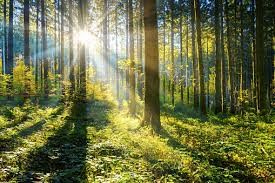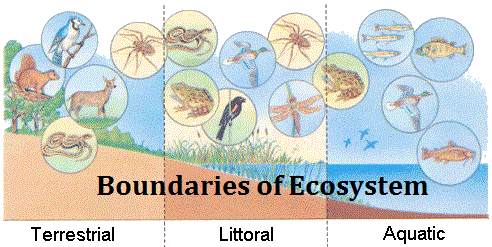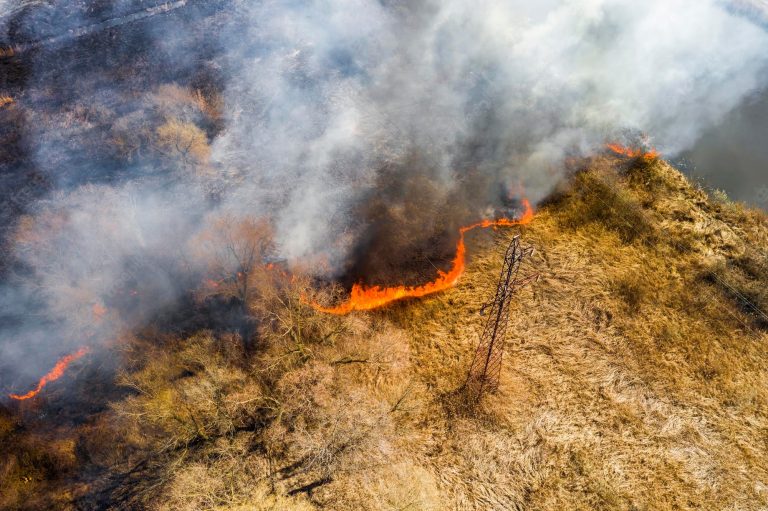Top 30 Reasons Why Forests are Important | Uses
Forests are important as they are a vibrant part of the earth’s natural resources. They cover one-third of all land on earth, providing dynamic organic infrastructure for some of the planet’s densest, most diverse collections of life. The area underwood is the index of the development and prosperity of a country. Forests cover approximately 230.48 million hectares of land on earth. They are one of the natural resources among oceans, mountains, minerals, and deserts.
Why forests are important?

Source: Unsplash
No one can deny the importance of forests. If you start counting, the list may go on… Feeling their prime importance, the United Nations has declared the 21st of March as the “International Day of Forests”. The list may go on while counting the benefits we are enjoying from this prime natural resource.
We can summarize the importance of forests as listed below;
- Forests are an important source of Lumber (harvested wood), logs of wood used in frames and construction
- Timber (work wood), is used for making boxes, crates, matches, and furniture.
- Paper is made by turning raw wood into pulp and processing it.
- For domestic or commercial use, fuelwood is harvested from woodland and combusted directly.
- The sap of the rubber plant (Latex) is a stable and stretchy emulsion used in common households.
- Many species contain alkaloids used in Medicine e.g. reserpine, ephedrine, caffeine, quinine, and many antibacterial compounds. Theophylline (for asthma) comes from the cocoa tree. Almost 70% of the drugs for cancer treatment come from rainforests.
- Forests are important as the resin is extracted from trees.
- Woodland is not only the place or home for many species but they also provide food. Food sources from the woodland include honey, berries, nuts, mushrooms, wild meat, fruits, oils, etc.
- They are the best place for leisure, recreation, tourism, and pleasure for a nature-loving individual. Ecotourism is a healthy outdoor activity and blessing by forests.
- Their natural beauty is the most obvious benefit.
- Forests are important source of scenic beauty as they boost creativity, encourage meditation, and speed up recovery through their majestic views. Human attracts to their scenic beauty “biophilia”
- They are good for the soul. One can feel fresh and energized when surrounded by trees. This can improve your immune system by decreasing your stress level.
- They provide us with clean, cool, and fresh air. They are effective air filters and purifiers. For an environmentalist and naturalist, this is what the woodlands do best.
- They are not only the home of wild vegetation but they are also home to more than three-quarters of world life on this planet. Whether it is a bug in the leaf litter on the floor of the plantation or a bird in the tree nest or a squirrel jumping from branches to stem, a woodland is the home of all types of wildlife. Wildlife conservation is the prime important role jungles are playing for centuries.
- They are more than just trees. Nearly half of all known species live in jungles, including 80 percent of biodiversity on land.
- People also live there. Almost 300 million people live in woodlands. Their survival depends upon native woods.
- Woodlands help us breathe in fresh and pure air. They help us to feel better. Forests are important as they capture particulate matter (PM) making air free of that pollutant. We all should say thanks to woodland while breathing in…. breathing out.
- Fight against floods and hazardous winds. They hold the soil firmly with their roots and protect them against runoff. Leaves and branches catch raindrops and reduce the speed and intensity with which they hit the ground. This helps soil from washing away with running water (erosion)
- And above all, forests are called the lungs of nature. This attribute makes the importance of forests significant. forests clean up the dirty air. They catch and soak air pollutants.
- Trees are a natural noise barrier. The muffling effect makes them more important. They can cut the background sound level up to 10 decibels.
- Forests are important as they “beat the heat” and keep our planet cool. They are the big sink of CO2 thus limiting major greenhouse gas.
- They have a positive impact on microclimate and regional climate as well. They help in maintaining the rainfall cycle. Amazon forests are important as they cause regular rainfall in the regions nearby.
- Their roots penetrate deep into the soil and help to holdfast the soil during floods. They limit soil erosion by wind and water (key factors of soil erosion).
- They also act as “sponges”. They absorb most of the water of rainfall as it moves slowly from the woods. Thus they refill the aquifers.
- Woods are a defense line against strong winds and save soil and vegetation as a shield.
- They clean the soil from toxins using the mechanism of phytoremediation. They sequester the toxins and degrade them.
- Whenever we step into shad on a hot summer day, we feel cooling. This cooling help in raining (rain forests) and thus new species of plants and animals are supported to grow and flourish.
- They are often termed as “secret fighters” in fighting climate change. CO2 is the major greenhouse gas causing global warming and climate change. Forests are important sinks of CO2 and thus fight great against climate change.
- Woodlands provide jobs to millions of people. Biologists, naturalists, forest officers, engineers, and many others rely on them.
- Forests are important source of herbs used for first aid by the people living in forests.
However, the blessing and gift of nature are on the verge of destruction by a number of factors. Forest Fire is among those destructive factors. Forest fire is a blessing too as it reduces CO2 levels in the atmosphere.
Also, visit the link below to find out how forest fire is destroying Forests and its impact.
FAQs
I’m Dr Qaiser Maqsood (PhD), a dedicated researcher and expert in Biological Sciences, Gardening, Bio-Diversity, Ecology, and Environmental Sciences. I’m much concerned about Environmental Pollution, Climate Change, Plantation, Gardening, and Global Warming. My passion is to explore innovative solutions in all these fields.
Be aware that we have ONLY ONE EARTH. Protect it!!






